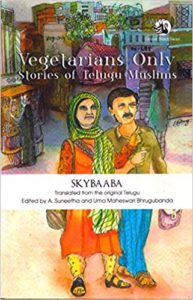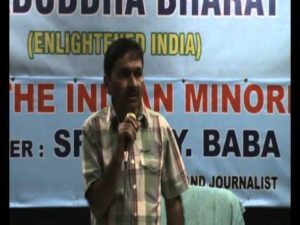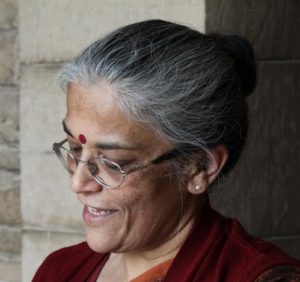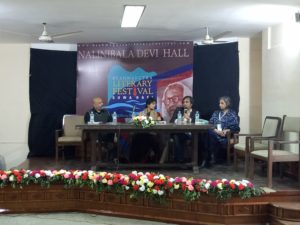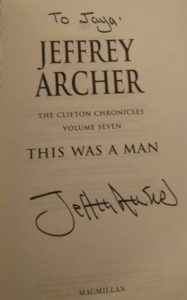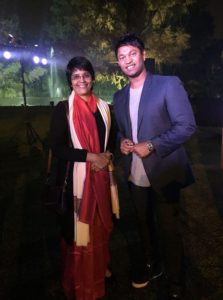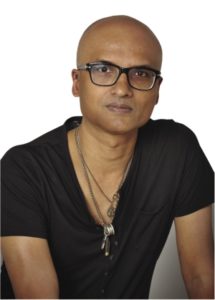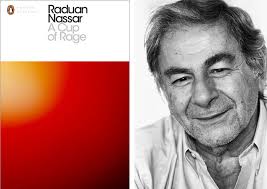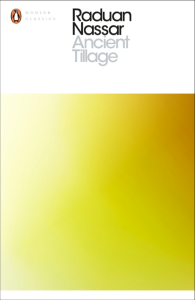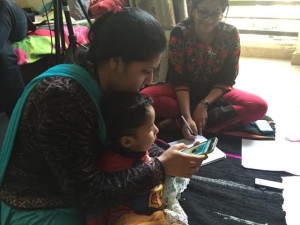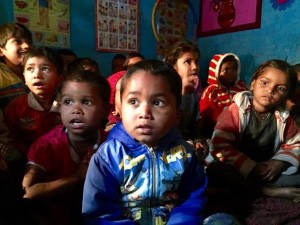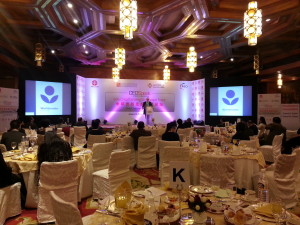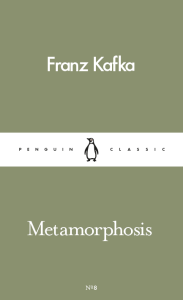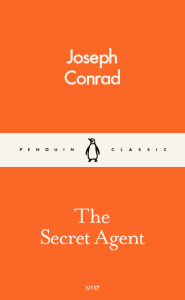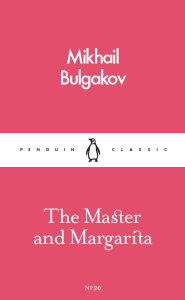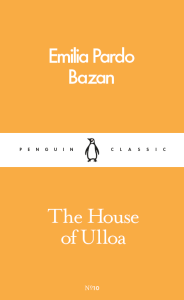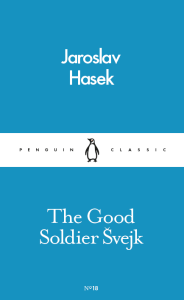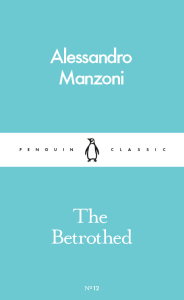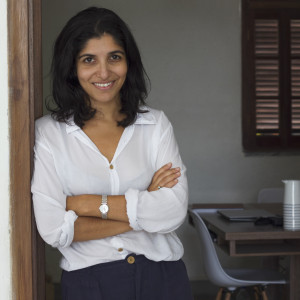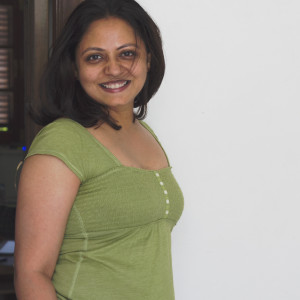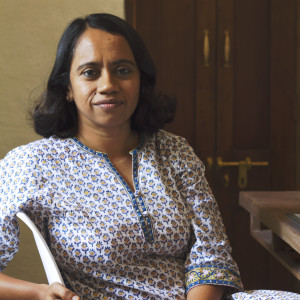Meeting Arundhati Roy at The Bookshop, Jor Bagh, New Delhi, 25 Aug 2017
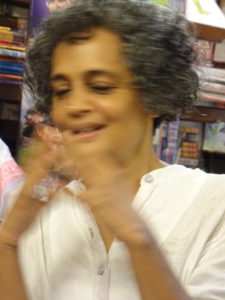 On Friday 25 August 2017 The Bookshop held a lovely interaction with award winning writer Arundhati Roy. The Bookshop is a warm space that magically transforms a literary evening into an electric engagement. Personal invitations had been sent to the select audience. There was no structure to the event which was a pleasure.
On Friday 25 August 2017 The Bookshop held a lovely interaction with award winning writer Arundhati Roy. The Bookshop is a warm space that magically transforms a literary evening into an electric engagement. Personal invitations had been sent to the select audience. There was no structure to the event which was a pleasure.
Arundhati Roy plunged straight into a conversation. She began the evening 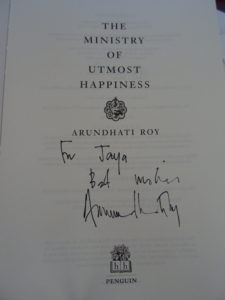 remembering the late owner and legendary bookseller K. D. Singh. She then read a long passage out of her novel The Ministry of Utmost Happiness . Hearing an author read out from their own novels is an unpredictable experience but in this case turned out to be extraordinary. Despite the novel being varied and politically charged in many places, reading it alone, a reader tends to respond to the text. Listening to Arundhati Roy narrate it last night was revelatory as she has a soft lilt to her voice which brings out the rhythm and structure of the storytelling, softpedalling to some extent the political punch, but never undermining. Hearing her read out aloud was like being lulled into a level of consciousness where the magic of storytelling overtook one and yet once it is was over it was the politically charged experience of the episode from Kashmir which she chose to narrate that lingered on. It probably would be worth getting the audiobook which the novelist has recorded herself. On the left is
remembering the late owner and legendary bookseller K. D. Singh. She then read a long passage out of her novel The Ministry of Utmost Happiness . Hearing an author read out from their own novels is an unpredictable experience but in this case turned out to be extraordinary. Despite the novel being varied and politically charged in many places, reading it alone, a reader tends to respond to the text. Listening to Arundhati Roy narrate it last night was revelatory as she has a soft lilt to her voice which brings out the rhythm and structure of the storytelling, softpedalling to some extent the political punch, but never undermining. Hearing her read out aloud was like being lulled into a level of consciousness where the magic of storytelling overtook one and yet once it is was over it was the politically charged experience of the episode from Kashmir which she chose to narrate that lingered on. It probably would be worth getting the audiobook which the novelist has recorded herself. On the left is 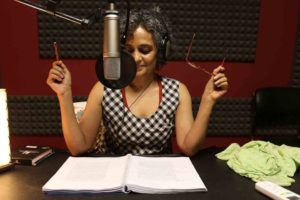 a picture taken by Mayank Austen Soofi and tweeted on 17 May 2017 by Simon Prosser, Publisher, Hamish Hamilton, Penguin Random House. On 24 August 2017 a digital companion to the novel was released called the Re: Reader. It is being hosted on a website of its own. According to the report in the Hindu, “The Re:Reader can be accessed on a smart phone by logging on to its website. The visitor is greeted by a ‘floating menu’ of different chapters, each with its own set of animated icons, sound effects, music, and a carefully chosen excerpt.
a picture taken by Mayank Austen Soofi and tweeted on 17 May 2017 by Simon Prosser, Publisher, Hamish Hamilton, Penguin Random House. On 24 August 2017 a digital companion to the novel was released called the Re: Reader. It is being hosted on a website of its own. According to the report in the Hindu, “The Re:Reader can be accessed on a smart phone by logging on to its website. The visitor is greeted by a ‘floating menu’ of different chapters, each with its own set of animated icons, sound effects, music, and a carefully chosen excerpt.
“Re:Reader has snippets of text from the 12 chapters of the book. Animations show the text in a new light; music brings the period to life, and with portions read by Arundhati Roy, it makes for a dreamy, heady ride. But none of these bits of ‘media’ are presented as ‘content’ for independent consumption. They are there to tempt, to intrigue, to transport the viewer to the Utmost world, not to reveal or substantially replace it.” Later this innovative reading experience may be converted into an app.
At The Bookshop interaction Arundhati Roy mentioned how when she writes fiction she does not let anyone, including her literary agent David Godwin, know that there is a work in progress as she is unable to handle the questions about when it will be ready for submission. Also knowing full well that once she hands over a manuscript there is frenzied activity and she needs to be prepared for it. Interestingly when the manuscript of this novel was finally completed to her satisfaction she lay down on her couch and wept for hours.
Given the small group sitting in a circle around and at the feet of the author made for a lovely intimate gathering allowing for conversation to flow easily. Sure there were many in the audience who were awe-struck by the celebrity they were enagaging with and yet the vibes were peaceful. It was an evening where Arundhati Roy shared insights about her writing and editing process, some of which I scribbled down in my edition of the novel.
There are many parts of the book which need a book of their own.
This book is fiction as much as my first novel The God of Small Things was. I use every part of myself to write 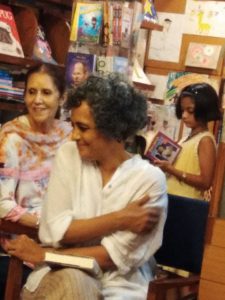 fiction. Experience informs your writing. Fiction is trying to create a universe which if it were unreal what would be the point of creating it?
fiction. Experience informs your writing. Fiction is trying to create a universe which if it were unreal what would be the point of creating it?
When asked if it was an “autobiographical novel” she said “What is an autobiography? These questions do not matter if this autobiographical or the truth. The character in fiction is more real and eternal than the real person.”
While writing fiction my body feels very different. With non-fiction there is a sense of urgency. In fiction I am just at my own speed. It is almost like cooking — it takes as much time as it takes.
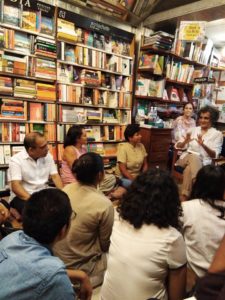 When asked about editing her manuscripts she replied “ I don’t draft and redraft sentences which some people attribute to arrogance. I think of structure and characters take their own time to deepen. These are people I want to be able to spend rest of my life with. I don’t write sequentially. I already have a sense of it. It is a combination of control and release.”
When asked about editing her manuscripts she replied “ I don’t draft and redraft sentences which some people attribute to arrogance. I think of structure and characters take their own time to deepen. These are people I want to be able to spend rest of my life with. I don’t write sequentially. I already have a sense of it. It is a combination of control and release.”
On the structure of this novel she said: “This book is much more complexly structured. It is like a big metropolis in the fluid world. It has its old parts and its pathways. It has its democracy. The crowds have faces in it. When you see the narrative as a city then you are going down blind alleys.”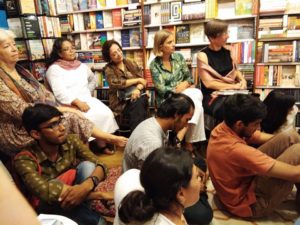
On writing: “The way things are here and now I would not want to write it scared. Just write.” She added ” Factual knowledge has to be charged. My instinctiveness works the best for fiction.”
On the parallels being drawn between Anjum and Mona ( made famous by Dayanita Singh’s photographs), she said “Anjum is not Mona but she is in Mona’s situation. Mona is definitely not a political person unlike Anjum.”
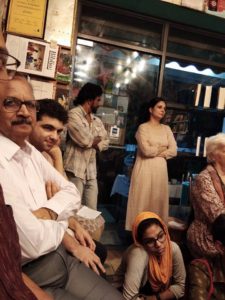 Arunava Sinha, journalist and established Bengali to English translator, posed an interesting question to Arundhati Roy. He asked if she had had any interesting questions from her translators. Apparently the Polish translator has been flummoxed by sentences such as “evil weevil always make the cut” whereas the French translator has found the “Acknowledgements” the toughest such as “who queered my pitch”. As for the Hindi and Urdu translations she is working upon them line by line.
Arunava Sinha, journalist and established Bengali to English translator, posed an interesting question to Arundhati Roy. He asked if she had had any interesting questions from her translators. Apparently the Polish translator has been flummoxed by sentences such as “evil weevil always make the cut” whereas the French translator has found the “Acknowledgements” the toughest such as “who queered my pitch”. As for the Hindi and Urdu translations she is working upon them line by line.
While discussing her author tours as was done over summer she says she felt as if she herself was a tourist living in Jannat for she visited 20 cities in the space of 24 days. Surprisingly she returned home with no jet lag whatsoever! The reception to her book has been tremendous and she has been reading and promoting the book to packed audiences. In Buffalo, for instance, she was to address a 1000-strong audience and surprisingly not a single copy of the book was sold at the venue since every single member of the audience was carrying their very own dog-eared copy of the novel. Another anecdote was about Kashmir which forms a large part of this novel since “you cannot tell the story of Kashmir in a footnote”. She has recently returned from a visit to the state where she met Khan Sahib, an old friend, who had scribbled in his copy of the book extensively with comments trying to figure out the references in the book. What was even more incredulous were the visitors she had coming by all night asking her to autograph their editions of the book.
All in all it was a fabulously magical gathering.
26 August 2017

